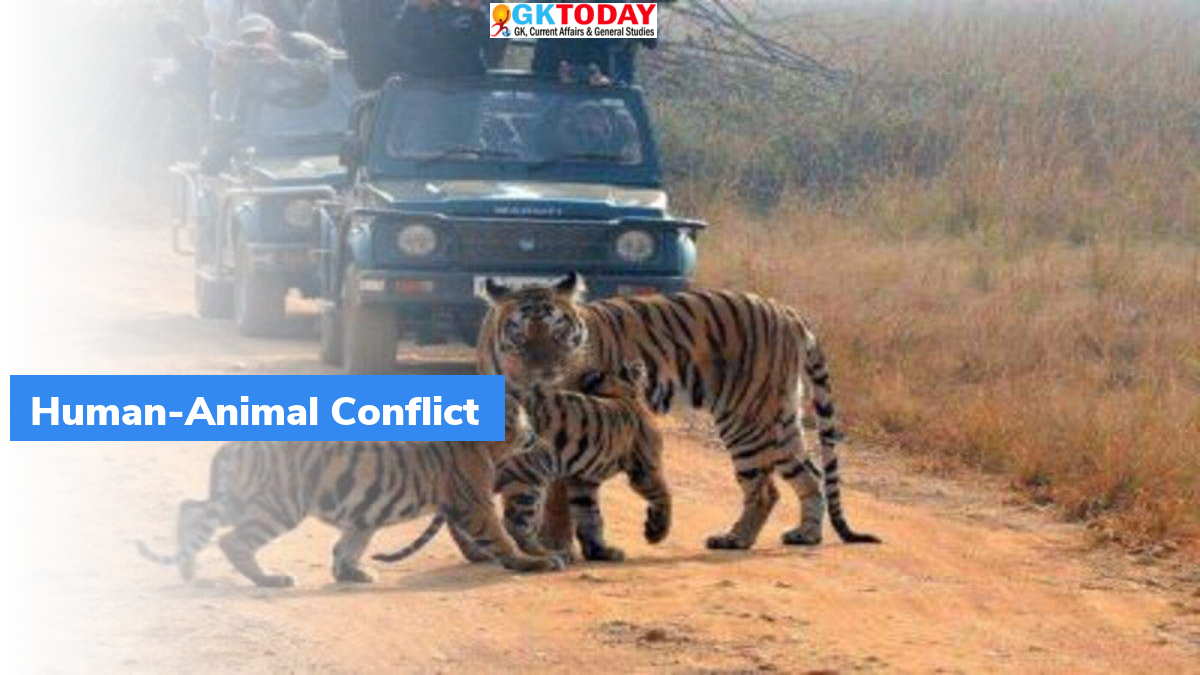WWF-UNEP report on Human-wildlife coexistence
World Wide Fund for Nature (WWF) and UN Environment Programme (UNEP) recently released its report titled “A future for all – the need for human-wildlife coexistence”.
Key findings of Report
- As per report, human-animal conflict is one of the main threats for long-term survival of world’s most iconic species.
- Conflict-related deaths affect more than 75 per cent of world’s wild cat species.
- It also affects polar bears, Mediterranean monk seals and large herbivores like elephants.
- Global wildlife populations have decreased by 68 per cent since 1970 because of conflicts.
What does report highlights about India?
- In India, human-elephant conflict resulted into killing of 500 elephants and 2361 people during 2014-2015 and 2018-2019.
- India is going to be most-affected by human-wildlife conflict because of having world’s second-largest human population and large populations of tigers, Asiatic Lions, Asian elephants, one-horned rhinos etc.
Way forward
Human-animal conflict cannot be eradicated completely. However, a well-planned and integrated approaches can be adopted in order to reduce conflicts. It can also lead to a form of coexistence between humans and animals.
Sonitpur Model of India
This model was developed by WWF India in Sonitpur district of Assam where, destruction of forests had led elephants to raid crops. This was causing deaths of humans as well as elephants. To reduce the conflict, ‘Sonitpur Model’ was developed during 2003-2004. Under this model, community members are connected with state forest department. Community members are given training regarding how to work in field and drive elephants away from crop fields safely. WWF India also developed a low-cost, single strand, non-lethal electric fence in a bid to ease guarding of crops from elephants. As a result of this model, crop losses reduced to zero and Human & elephant deaths also reduced.
Month: Current Affairs - July, 2021


